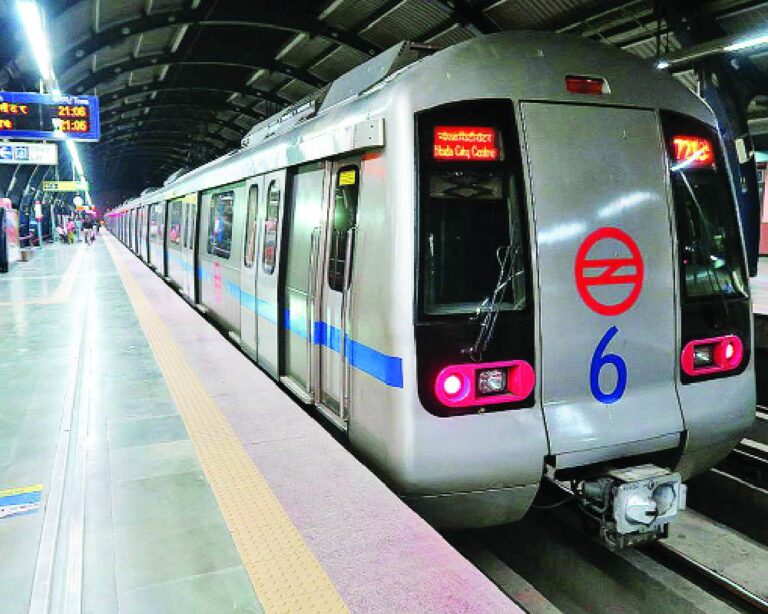The Delhi Metro Rail Corporation (DMRC) will run 40 extra trips on weekdays in a bid to cut air pollution. The enhanced capacity is aimed at encouraging commuters to opt for the metro, ditching their vehicles.
According to a statement, DMRC Managing Director Dr Vikas Kumar, along with officials from civil and environment departments, inspected north Delhi’s Ashok Vihar and Derawal Nagar areas, along the under-construction Krishna Park Extension-RK Ashram Marg corridor, to review the dust minimising efforts.
Kumar said the transporter may further extend the extra trips to 60, in case GRAP-III is enforced. The DMRC said it has been sprinkling water at construction and demolition sites and ensuring a safe disposal of waste material to curb air pollution.
The move is aimed at encouraging people to use Metro instead of their own vehicles and help mitigate the deteriorating air quality in the capital city as a collective responsibility.
The washing of wheels before the vehicles leave these sites has been mandated, it added. Anti-smog guns have been deployed at all such active sites in line with the order. Anti-smog guns have been deputed at the sites as per prescribed norms. In fact, DMRC was the first construction agency in the National Capital Region to deploy anti-smog guns much before their use was mandated by the government.
Presently, around 82 such machines have been deployed across the construction sites and more will be added as per requirement. The DMRC MD checked the functioning of the anti-smog guns and wheel washing facilities and took a detailed briefing regarding all the arrangements.
He also gave directions to the site personnel to ensure that the bodies of the dumpers are also cleaned and there is no overflow of construction materials from moving vehicles.
The DMRC has also undertaken a series of long-term environmental initiatives. During the construction of Phase IV underground stations at Ghanta Ghar and Pul Bangash, the dewatered water was channelled through a pipeline to Roshanara Bagh Lake, resulting in its rejuvenation, it said.
It said that its Blue Line, connecting Yamuna Bank with Vaishali in Ghaziabad, and DMRC’s corporate headquarters at Metro Bhawan, have both been declared carbon neutral.
Using the Miyawaki method of dense urban plantation, over 12,500 saplings were planted on approximately 1.2 acres near the Najafgarh Metro Depot and the Metro Niketan residential colony, it said.
A study conducted by the Energy and Resources Institute on the ‘Socio-Economic Benefits of Delhi Metro’ highlighted the environmental and social impact of the network.
The study found that in 2024, the Delhi Metro helped keep more than 6.4 lakh vehicles off the road daily, resulting in an annual reduction of 4,026 million vehicle kilometres. It also led to a reduction of about 3.11 lakh tonnes of fuel consumption and nearly 9.52 lakh tonnes of pollutants each year, along with saving approximately 337 million passenger hours annually.
The report also highlighted that metro operations helped prevent 14 fatal accidents and 60 total accidents over the year.
Images are for reference only.Images and contents gathered automatic from google or 3rd party sources.All rights on the images and contents are with their legal original owners.

